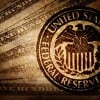Sorry, no content matched your criteria.
Featured Story
Here's the Size of the Scam the Fed and U.S. Companies Are Pulling on Us

Stocks have been on a tear. After looking weak in February, they've soared close to 13% in a matter of weeks.
So why does it all feel like a magic trick? Why isn't the market rally giving investors any solid feelings? Why is everyone so nervous?
I'll tell you what's going on, who's responsible, and what you need to do now. Let's get started...
Stocks have been on a tear. After looking weak in February, they've soared close to 13% in a matter of weeks.
So why does it all feel like a magic trick? Why isn't the market rally giving investors any solid feelings? Why is everyone so nervous?
I'll tell you what's going on, who's responsible, and what you need to do now. Let's get started...
